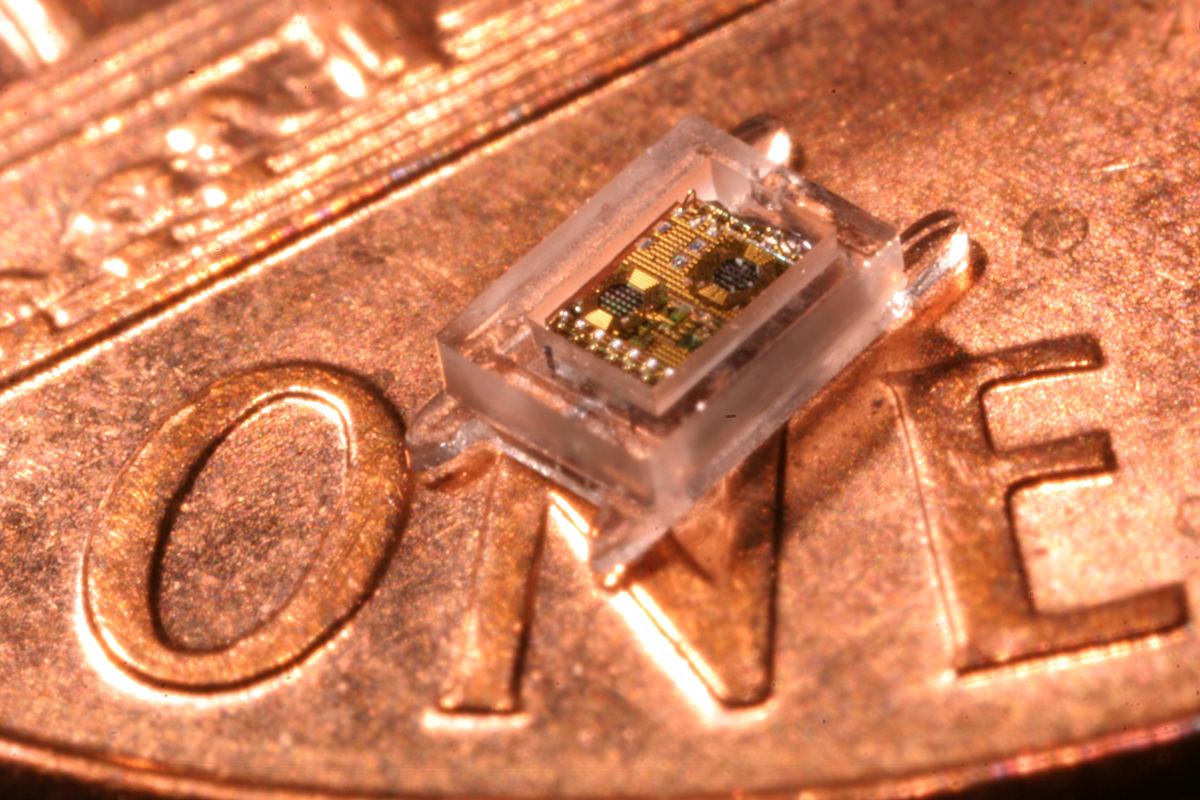Pen tip-sized computer could change medicine
Michigan's miniature microchip marvel may be modern medical miracle.

University researchers have invented a prototype medical computer the size of a pen nib.
Boffins at the University of Michigan have created a computer just one cubic millimeter in size. Despite its tiny dimensions, the third-generation Phoenix computer contains a processor, pressure sensor, memory, an ultra-thin battery, a radio with antenna and even a solar charging system.
Phoenix is designed to track the progress of glaucoma, a degenerative eye condition that can ultimately lead to blindness, but potential future uses for the computer include measuring pollution and surveillance operations.
The radio can automatically tune itself when it connects to an external data collection computer, so it doesn't need to be manually tuned. According to the scientists, the processor needs just 5.3 nanowatts of power (compared to around 18 watts for the average netbook) so the battery can be recharged when exposed to 10 hours of indoor light a day or one and a half hours of sunlight.
Phoenix is still in the lab and isn't yet in commercial production, with details of the computer only released today at the International Solid-State Circuits Conference (ISSCC) in San Francisco.
Get the ITPro daily newsletter
Sign up today and you will receive a free copy of our Future Focus 2025 report - the leading guidance on AI, cybersecurity and other IT challenges as per 700+ senior executives
-
 Businesses are taking their eye off the ball with vulnerability patching
Businesses are taking their eye off the ball with vulnerability patchingNews Security leaders are overconfident in their organization’s security posture while allowing vulnerability patching to fall by the wayside.
By Jane McCallion Published
-
 Global cybersecurity spending is set to rise 12% in 2025 – here are the industries ramping up investment
Global cybersecurity spending is set to rise 12% in 2025 – here are the industries ramping up investmentNews Global cybersecurity spending is expected to surge this year, fueled by escalating state-sponsored threats and the rise of generative AI, according to new analysis from IDC.
By Ross Kelly Published